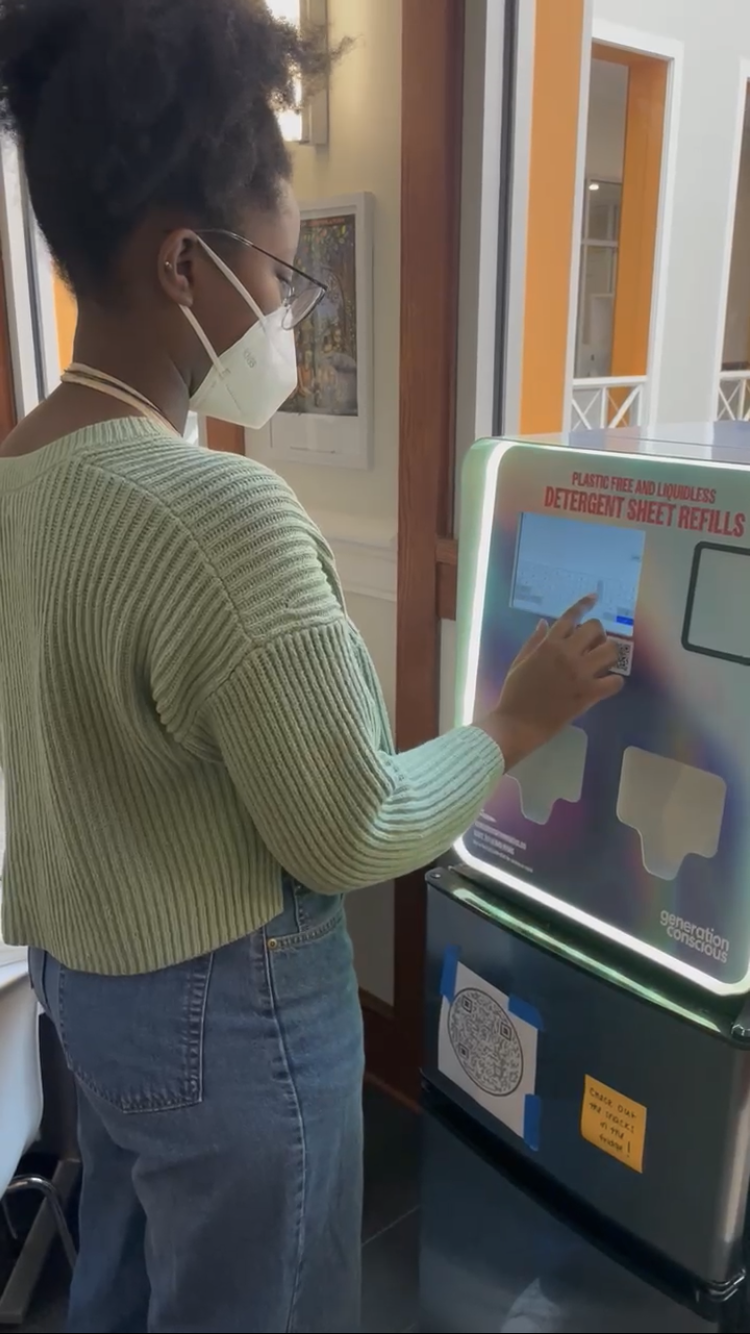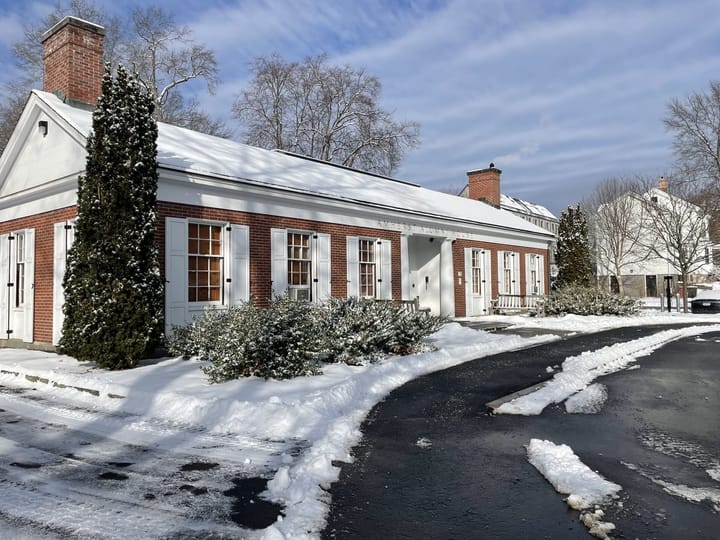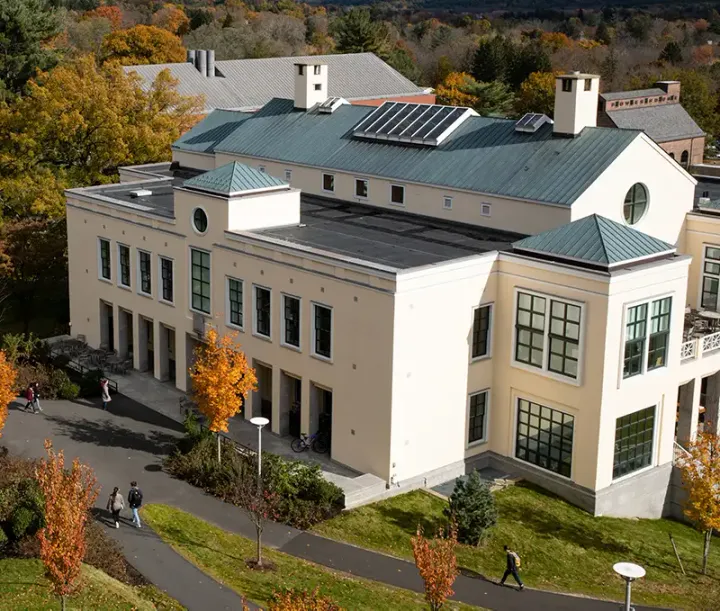Following AAS Proposal, Free Laundry Detergent Sheets Now Available
A newly approved proposal by AAS Senator Sirus Wheaton '23 will provide free zero-waste laundry detergent sheets to all students. The initiative aims to reduce Amherst’s carbon footprint while also easing the financial burden of buying hygiene products for low-income students.


Students can now swap their Tide pods for free sustainable detergent sheets.
On Feb. 28, the Association of Amherst Students (AAS) approved AAS Senator Sirus Wheaton’s ’23 proposal to provide zero-waste laundry detergent sheets for all Amherst students. The initiative aims to reduce Amherst’s carbon footprint, while also easing the financial burden of buying hygiene products for students from marginalized, low-income, and first-generation communities. Although Wheaton originally sought to partner with the administration to fund the initiative, he reported that repeated delays in the process led him to request the funding from the AAS instead.
Wheaton’s plan consists of installing seven zero-waste laundry detergent sheet dispenser refill stations on campus — one in each first-year laundry room (with James and Stearns Halls sharing one) and one in the Class & Access Resource Center (CARC) on the second floor of Keefe Campus Center. The stations are to be supplied by Generation Conscious, a company founded by Greg Genco ’11 that produces eco-friendly detergent sheets and refill stations. All students will be provided an initial batch of laundry sheets in a reusable aluminum container that can be used for additional refills. The station in Keefe was installed on March 1; the timeline for the other stations is uncertain, but Wheaton hopes they will be installed by the end of the semester.
Wheaton explained that he chose the first-year dorms to facilitate a lasting culture of practicing zero-waste habits at the start of students’ careers at Amherst, and chose Keefe in an effort to make the refill stations accessible to the entire Amherst community. Moving forward, Wheaton’s goal is for a gradual installation of refill stations in every dorm on campus.
Wheaton said that, beyond instilling better environmental practices, his initiative also provides significant assistance to students from marginalized communities trying to navigate their way through a prestigious PWI (predominately white institution). “The college doesn’t do enough to support its first-gen, low-income students and one thing they could easily do is provide basic hygiene supplies,” he said.
The idea for the initiative came from Wheaton’s time working with #ReclaimAmherst in his freshman year, following up on the campaign’s demand that exclusionary expenses such as laundry detergent be funded for students. When Wheaton became an AAS senator as a sophomore, this idea took shape as his Senate project. As part of that project, in the Spring of 2021, he provided 500 sample packages of Generation Conscious’ products to the student body.
Based on the success of that program, Wheaton became interested in partnering with the administration to ensure the longevity of the program. He began communicating with various areas of the administration to seek approval for funding, including the Office of Residential Life, the Office of Environmental Sustainability, and Student Activities, among others.
Wheaton reported getting a lot of “pushback” from the administration, however, when he sought their approval and funding. Over the course of several meetings throughout this past fall semester, “they told me to fix all of these things and then once I did, they found new things for me to fix,” he recalled. “It just felt like I was doing all of the work alone, even though it’s a good idea. They didn’t exactly say no to my proposal, they said, ‘Let’s look at it again next year.’ They just kept waiting me out.”
“There were times when it seemed like it was going to be approved,” Wheaton continued, “but then at the beginning of this semester someone who wasn’t involved in all my conversations last semester emailed me saying it wasn’t approved.”
According to Dean of Students Liz Agosto, the administration’s concerns “were focused on the installation process and any potential disruption, and the long-term maintenance and sustainability of the proposed installation. Beyond the one-time costs associated with the purchase of the dispensers, questions remain about how the systems would be maintained (who would maintain and stock them) and the long-term budget implications.”
Wheaton’s written proposal for the program states that, at $4,000 apiece, the refill stations cost $28,000 in total, with the only ongoing cost coming from supplying the stations with detergent sheets. It also states that Generation Conscious will train a few FLI students to help maintain the stations, paying them $20/hour to service the refill stations. “This group committed to maintaining these stations will become an RSO or designated student group so that the program may continue after I graduate,” the proposal explains.
Wheaton expressed that the lack of support the administration gave his proposal was confusing and frustrating. “I didn’t really get any explanation. I mean, I did, but I kind of wanted more because it was so surprising and upsetting. It seems like they don’t understand the immediacy or the necessity to fix hygiene insecurity.” Nonetheless, he expressed appreciation for the individuals in the administration who were supporting him throughout the process.
After reporting to the AAS in their Feb. 21 meeting that the college had elected not to fund his request for $28,000, Wheaton sought funding for his proposal from the AAS on Feb. 28, with the motion being passed. Wheaton expressed gratitude for support he received from the AAS and the student body at large throughout the process: “The amount of support I had within AAS, or even just the people that would come up to me and say, ‘This is a really good idea’ or ‘This is a great product,’ was just super cool.”
Blair Chase ’24, who worked alongside Wheaton in the endeavor to secure funding from the administration, believes that Wheaton’s proposal is very important not only for the Amherst community, but also for the planet. “We are the next generation to inherit the world and it is crucial that a major institution with tons of resources like Amherst places its support in the companies and products that help secure a cleaner and safer future,” he said.





Comments ()